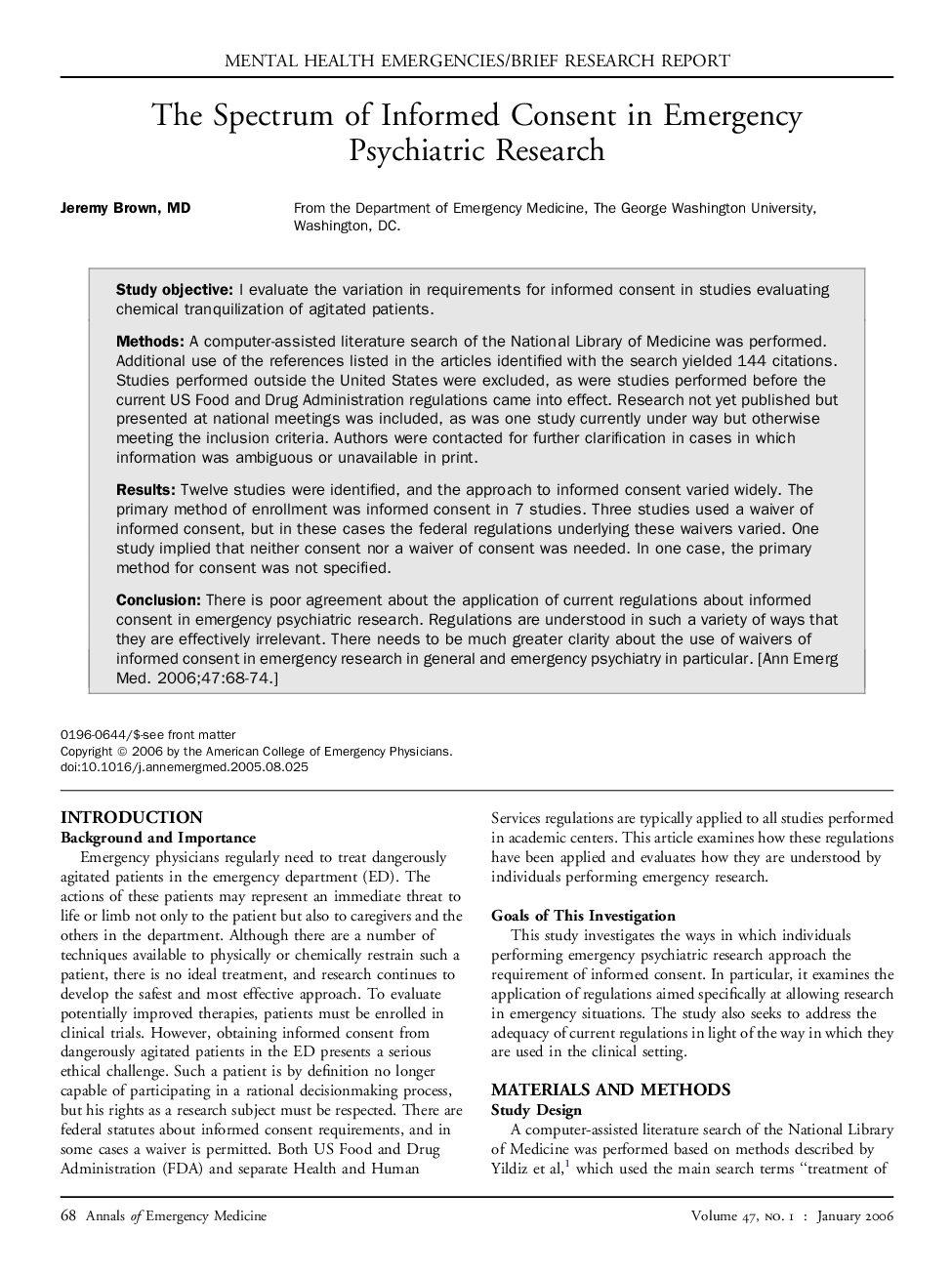| Article ID | Journal | Published Year | Pages | File Type |
|---|---|---|---|---|
| 3234100 | Annals of Emergency Medicine | 2006 | 7 Pages |
Study objectiveI evaluate the variation in requirements for informed consent in studies evaluating chemical tranquilization of agitated patients.MethodsA computer-assisted literature search of the National Library of Medicine was performed. Additional use of the references listed in the articles identified with the search yielded 144 citations. Studies performed outside the United States were excluded, as were studies performed before the current US Food and Drug Administration regulations came into effect. Research not yet published but presented at national meetings was included, as was one study currently under way but otherwise meeting the inclusion criteria. Authors were contacted for further clarification in cases in which information was ambiguous or unavailable in print.ResultsTwelve studies were identified, and the approach to informed consent varied widely. The primary method of enrollment was informed consent in 7 studies. Three studies used a waiver of informed consent, but in these cases the federal regulations underlying these waivers varied. One study implied that neither consent nor a waiver of consent was needed. In one case, the primary method for consent was not specified.ConclusionThere is poor agreement about the application of current regulations about informed consent in emergency psychiatric research. Regulations are understood in such a variety of ways that they are effectively irrelevant. There needs to be much greater clarity about the use of waivers of informed consent in emergency research in general and emergency psychiatry in particular.
